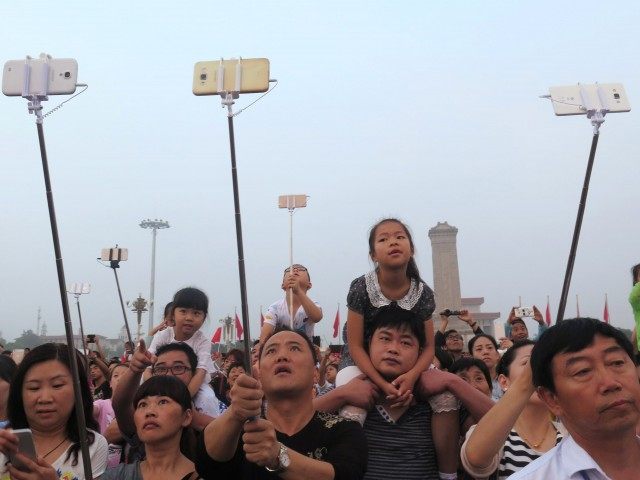The communist Chinese regime fears the risk of a rebellion if tens of millions of rural migrants lose their jobs, with the export-driven economy crumbling.
A 250 million Chinese are employed in export industries, and last month’s 8.3 percent plunge in exports threatened the loss of 16.6 million jobs. China’s economic success attracted 252 million migrant workers from the countryside as city wages rose by 10 percent per year for a decade. But now that population is in danger of losing their economic lifeline–and could prove politicallyvolatile.
China has a total population of 1.35 billion and a workforce of 764.2 million people. About 359.14 million are employed in the urban environment and 405 million are employed in rural areas, mostly still in agriculture. But 252.78 million urban workers are rural migrant laborers, with 158.63 million working outside their distant home provinces.
In 1958, the China Communist Party introduced the “hukou system” as a family register to control the movement of people between urban and rural areas, because urban life was in much higher demand. Every citizen was marked as either “rural” or “urban,” with the rural needing a special temporary permit to work inside a city. Until the 1980s, police periodically rounded up migrants without “urban hukou” residence permits, placed them in detention centers, and expelled them from cities.
During the mass famines of the Great Leap Forward from 1958 to 1962, being classified as “urban” as opposed to “rural” often meant the difference between life and death. The 100 million “urban” citizens were fed daily on central government rations. The rations declined to 1500 calories per day, but that was usually enough for survival.
The 600 million “rural hukou” citizens were forced to live inside communal farms, where food was allowed to leave, but not to enter. After massive declines in agricultural production, the remaining food in the communal farms was seized by communist government agents, leading to the deaths of more than 30 million “rural” citizens.
When the controls on movement were relaxed, tens of millions of rural workers left the fields to work in factories, toil on construction sites, serve in restaurants or clean homes. China’s supposed “economic miracle” was driven by rural migrants living in dormitories.
But while they built new cities and boosted their incomes, migrants have not enjoyed the same benefits in healthcare, pensions and other social welfare as city residents. Rural migrant children often struggle to find education, and tens of millions have been left in the countryside to be raised by grandparents.
“Hukou is basically apartheid—apartheid against domestic servants,” Lynette Ong, associate professor of political science at the University of Toronto told the Guardian.
The official June unemployment rate in urban China stood at 4.1 percent since 2011. The official number of unemployed persons is 9.2 million. But that number does not necessarily include the rural hukou who have been working in cities as migrants.
Since migrants’ temporary work permits are to a company, they have virtually no access to social welfare or unemployment benefits if they are laid off. With no benefits for migrants filing for unemployment, China’s unemployment rate is severely understated.
China claims to have a $10.3 trillion GDP, but many analysts believe the number is inflated. There is good data that China exports $2.1 trillion and imports only $1.4 trillion a year.
Analysts expected China’s July export numbers to only drop by 1 percent, after growing by 2.8 percent in June. However, the data revealed that demand from the Europe Union, China’s biggest trading partner, crashed by 2.3 percent.
China announced a year ago that it would be changing the hukou system over the next 6 years to give 100 million rural hukou migrants permanent urban residence rights. But the details of the proposed plan made huge exclusions, and the crisis has arrived.
China chose to devalue its yuan currency this week to reserve export-driven migrant jobs. To Chinese communists, taking political heat from American and European Union politicians is less scary than the risk of a rebellion by tens of millions of angry unemployed rural migrants.

COMMENTS
Please let us know if you're having issues with commenting.